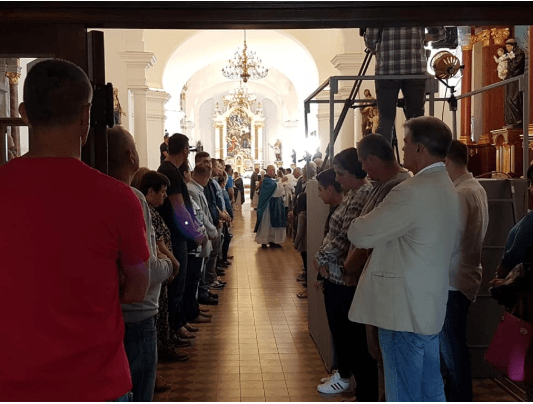PM Andrej Plenković: Finance Minister Zdravko Marić Won't Leave Government
Amid rumours that the finance minister, Zdravko Marić, is set to step down from his position within the Croatian Government as soon as next month, PM Andrej Plenković has been having his refusal to outright deny the claims scrutinised, with some believing that this means Marić's departure was imminent and due to take place in early 2019. It seems however, that Marić isn't going anywhere.
As Poslovni Dnevnik writes on the 9th of December, 2018, HDZ President and PM Andrej Plenković said on Saturday that Finance Minister Zdravko Maric isn't going to leave the government.
"There will be no departure," Plenković told journalists after the he was questioned about whether or not he'd talked to Marić himself about his alleged departure from the cabinet before the end of his mandate, as was being circulated by some media outlets.
The Prime Minister, upon being questioned about the criticisms of controversial SDSS President Milorad Pupovac regarding recent arrests in Vukovar, said that he didn't listen to that press conference, adding that the current government is not interfering with the work of the police or with the work of DORH in any manner whatsoever.
He pointed out, in order to quell people's natural suspicions that "there are no invisible political hands" holding any influence over this process.
When asked about the elections for the European Parliament, PM Andrej Plenković stated that the party would be "almost sure" on their own and that at least five mandates can be expected. "We'll win convincingly in those elections," he said briefly.
Concerning the controversy around the procurement of Israeli F-16 aircraft, Plenković reiterated that everything that the Republic of Croatia did in this process was done systematically, thoroughly, and in fine detail, and that open issues, if there are any, exist solely between Israel and the United States of America, and are nothing to do with Croatia or the part Croatia played in the process.
He confirmed that he visited Zagreb's mayor Milan Bandić was taken to hospital yesterday morning, adding that Bandić claims to be feeling good and that he believes that he will recover and be back on his feet quickly.
Make sure to follow our dedicated politics page for more on PM Andrej Plenković, the Croatian Government, and updates from both domestic and European politics in Croatia.
War Crimes Suspects Arrested in Vukovar
ZAGREB, December 6, 2018 - Minister of the Interior Davor Božinović said in Brussels on Thursday that several persons had been arrested as war crimes suspects in the Vukovar area, but added that he was not familiar with the details.
"As minister, I don't know nor can I know the details but what I can confirm is that several people were arrested today for war crimes and a criminal investigation is underway. That is all I can say for the moment," Božinović said in Brussels where he was attending a Justice and Home Affairs Council meeting.
A spokeswoman in the ministry, Marina Mandić, confirmed to HINA that a criminal investigation was underway related to war crimes committed in 1991 in the Vukovar area. She said that several people were under investigation and that more details would be made public upon the completion of the investigation.
Media outlets have reported that an investigation has been launched against five ethnic Serbs from Vukovar who were taken in for questioning early on Thursday morning on suspicion of committing war crimes in Vukovar in 1991.
Minister Božinović underscored that he wished to recall that the chief police director had in February, "prior to some processes and protests in Croatia, set up a task force that began to intensively investigate war crimes in the Vukovar area. So far, the task force has filed criminal charges in three cases of war crimes as well as for four crimes committed on the Ovčara farm" (the site of a 1991 atrocity near Vukovar).
"The task force is working very seriously and thoroughly. As you know, investigating war crimes committed 27 years ago isn't easy. It is very complex and it would have been much better if investigations had been launched sooner. This government and the interior ministry began working on that as soon as they were given the mandate. The results are visible and we will continue on that path," said Božinović.
Prime Minister Andrej Plenković dismissed on Thursday speculation that the arrest of several people from Vukovar, suspected of war crimes committed in 1991, had been made due to pressure by Vukovar Mayor Ivan Penava, noting that the police and prosecutorial authorities were doing their job in line with the law and autonomously.
"No. The police are doing their job, as is the special task force for war crimes, which has been dealing with war crimes in Vukovar and at Ovčara in such a way that has resulted in these steps and procedures. It has been working since February. This has nothing to do with political pressure. The police, the Office of the Chief State Prosecutor (DORH) are doing their job lawfully and independently of any institution," Plenković said after a cabinet meeting in Karlovac.
The Independent Democratic Serb Party (SDSS) and the Joint Council of Serb-majority Municipalities (ZVO) expressed concern on Thursday after police arrested five ethnic Serbs in Vukovar early in the morning and took them in for questioning as part of a war crimes investigation.
"Without wishing to question police work or obstruct an investigation into war crimes, our concern is based on the fact that the latest police action comes after a political campaign launched at national and local level to exert pressure on the police and investigators," the SDSS and ZVO said in a joint statement.
They said that this campaign and the latest police action caused fear in Vukovar's Serb community and doubts of impartiality of the necessary investigation into war crimes. They said that the individuals brought in for questioning had regularly responded to police summons for questioning and had never shown a readiness to obstruct or avoid cooperation with the police.
"We fear that the purpose of their detention is to please the campaign actors who created such an atmosphere in society and who spread intolerance towards the Serb community," the statement said. It warned that war crimes committed against Serbs in Vukovar and elsewhere during the 1991-1995 war remained unprosecuted, while the campaign to prosecute Serbs continued.
For more news about war crimes in Croatia, click here.
Croatian Company Based in Vukovar Experiences Continued Success
As Poslovni Dnevnik writes on the 3rd of December, 2018, over the past five years, ENNA has become a regionally recognisable Croatian company, strongly positioned in the field of energy, logistics, distribution and infrastructure, making a name for itself as a very serious, integrated logistic operator unique in the region.
While news about the emigration from Croatia and especially from Slavonia continues to depress the masses everyday, for the Vukovar-based Energia naturalis group (ENNA) in 2018, positive news about new investments and good business results came about. Engaged in the energy sector, the company decided to take advantage of the plethora of benefits of the common European energy market which opened up to Croatia after joining the European Union. They spent years learning about other markets and were intensively preparing, and the results of trade on the aforementioned common European market came in 2017, and eventually reflected in some excellent business results.
The headquarters of ENNA lies in the Eastern Croatian city of Vukovar, and it continues to successfully operate through companies located in Hungary, Switzerland, Bosnia and Herzegovina, Serbia, and Slovenia.
Their success is based primarily on a wealth of knowledge, this young and ambitious team are oriented towards the digitalisation of the processes that take place within the company. In a way, ENNA represents a new generation on the Croatian business scene, recognising opportunities in a liberalised and growing integrated common European market. Thanks to this, this Croatian company achieved an incredibly impressive 1.2 billion euro in consolidated revenues last year.
Over the past two years, ENNA has invested more than 78 million euro into its business, strategically deciding on investments which make the most out of the synergistic potential within their own company portfolio. This year, they have continued to invest in rail freight and in the Port of Ploče, ESCO, various renewable energy sources, and energy trading, in which they remain the most successful. The ENNA ESCO company is currently completing the energetic reconstruction of a general hospital in Varaždin, and the energetic renewal of the police academy building in Zagreb is still ongoing. At the same time, in the Vukovar economic zone, the cogeneration plant for the production of electricity for biomass - ENNA biomass Vukovar and the new PPD business building, are now being completed.
The confirmation of their serious position is certainly proven by the collaboration with globally successful foreign partners. This Vukovar-based Croatian company has cooperated with VTTI, one of the largest operators and owners of oil storage terminals in the world, with Gazprom in the natural gas trade, and with INA, they're developing a strategic partnership in the Petrokemija recapitalisation project.
The ENNA Group is in an intense digitalization process, with particular attention being paid to the education of its employees, through its own education and training system.
The real core of Energia naturalis is a PPD group that deals with the import, sale, supply and continued distribution of natural gas, and that story is one of seventeen long years of unwavering persistence.
As stated, that story started about seventeen years ago, PPD has been operating since 2001 and its beginnings are related to obtaining gas concessions in the town of Vukovar and nine municipalities in the wider area of Vukovar-Srijem County. The result is them becoming the 100 percent owner(s) of this high quality distribution network in a country that is entirely built on private investment.
Their capital was already over 100 million kuna, while their annual income was 50 million kuna. Over the last ten years, the company has managed to gain more than 13,000 permanent customers. The opening of the gas market, marked up as one of the conditions for Croatia's accession to the European Union, finally occurred in 2012, with Croatia joining the bloc the following year. PPD welcomed the move, armed with the knowledge and experience of the neighbouring Hungarian market which they had been constantly visiting and studying for years before.
Since then, their revenue has increased significantly, and their interest has increased alongside that revenue growth. In the ENNA group, which is the owner of PPD and twenty other companies, 300 people are employed, and that is a figure which continues to rise.
Special engagement in the Vukovar region is considered a socially responsible business, in which ENNA and PPD participate through the continuous training of their employees and the New tomorrow (Novo sutra) foundation, which invests in socially useful projects in Slavonia and in scholarships for Slavonian students.
In addition to investing back into their own business and employees, they also invest in sport - and are the proud sponsors of successful clubs such as RK PPD Zagreb and the ENNA Vukovar women's volleyball club. Thus, in addition to achieving excellent results, this Croatian company can also boast of investing in children and young people through some of the things that mean the most to them.
Make sure to follow our business and Made in Croatia pages for more information on Croatian companies, Croatian products, and doing business in Croatia.
The Vukovar They Rarely Mention: A Gorgeous Danube City
November 21, 2018 - The name of Vukovar will forever be associated with the brutal events of 1991, events remembered by all Croats on November 18 each year. There is another Vukovar which gets a lot less attention - the gorgeous town on the Danube which has risen from tragedy.
One of the most emotive days in the Croatian calendar is November 18, the day of the fall of Vukovar in 1991 after one of the most brutal sieges in history. The heroic defenders of the city held out for 87 days against vastly superior forces, and there were many stories of heroism from a city whose streets were devastated but its spirits unbroken.
Each year, on the anniversary, candles and wreaths are laid all over the country, in memory of those who gave their lives for a free Croatia. There is a Vukovar Street in every major city in Croatia, and these too are adorned with candles. It is a powerful and sombre sight, and an important part of the young nation's psyche., as a nation remembers the heroics of the past and vows never to forget.
My travels throughout Croatia had never taken me to Vukovar until this summer, and for me, it was a city that had withstood brutal punishment during the war, its residents understandably scarred by what they went through. Eastern Croatia rarely hits the news for positive reasons - emigration and war issues seem to be the most common news bites - and so my perception (and, I suspect, those of foreigners and a large number of Croats unfamiliar with eastern Croatia) about Vukovar was one of suffering, destruction and heroism. And so when I had the opportunity to visit this summer with a delegation from the 3rd Croatian Diaspora Congress, which took place in Osijek, I was very keen to go. I had no idea what to expect, but I knew it was going to be highly emotional. A tour of the hospital museum to see the suffering first hand, after a televised mass with the diaspora, most of whom were on their first visit to the hero city.
To be honest, I felt like an intruder walking in on private grief, and I did my best to be as unobtrusive as possible. It was a very emotional day for all.
Taking myself away from the tragedy of the very recent past, I looked around the Vukovar of today, and I was stunned. This city was GORGEOUS! Why did nobody tell me? In fact, why is the message of just how gorgeous Vukovar is today hardly getting out at all? I came, expecting to find a city still hurting from the physical scars of war (the mental ones are there forever), but the overriding impression I had of my visit to this Danube city was one of beauty and vibrancy - a true hidden gem. Along with visits to Ilok and Osijek, this Danube trio totally transformed my perceptions of all three destinations in particular, and the region in general. I can't wait to get back and explore in more detail. And if my perceptions were so radically changed, surely lots of others could be too.
The importance of remembering and honouring the past cannot be understated, but neither too can the importance of rebuilding and moving forward. Vukovar today is a fascinating and welcoming place, and I encourage you to visit. I sadly took almost no photos of my visit in July, but the Osijek Maestros, Romulic and Stojcic have these great photos to give a taster of how the city looks today, and the video above is a fun tour of the old town.
Looking to learn more about Vukovar? Here are 25 things to know about the proud city on the Danube.
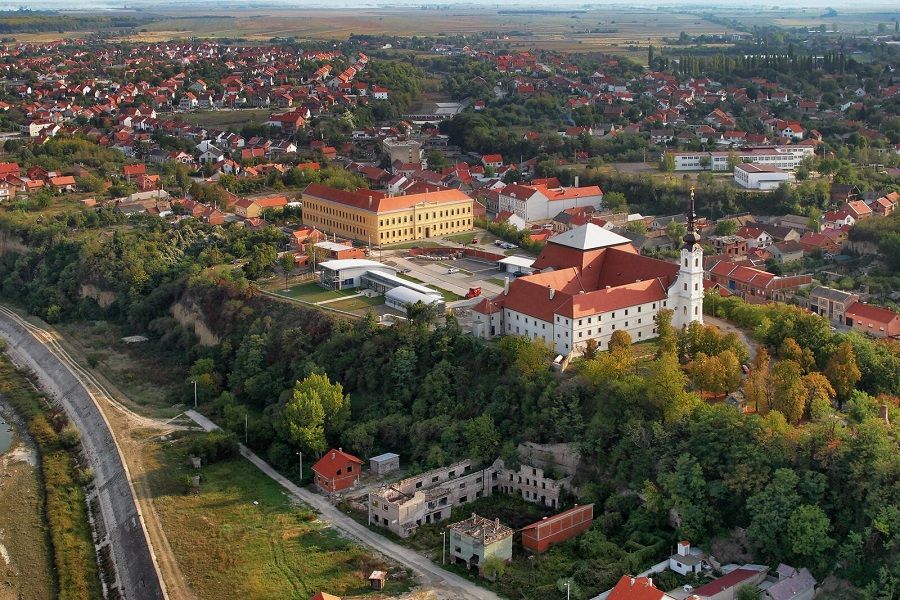
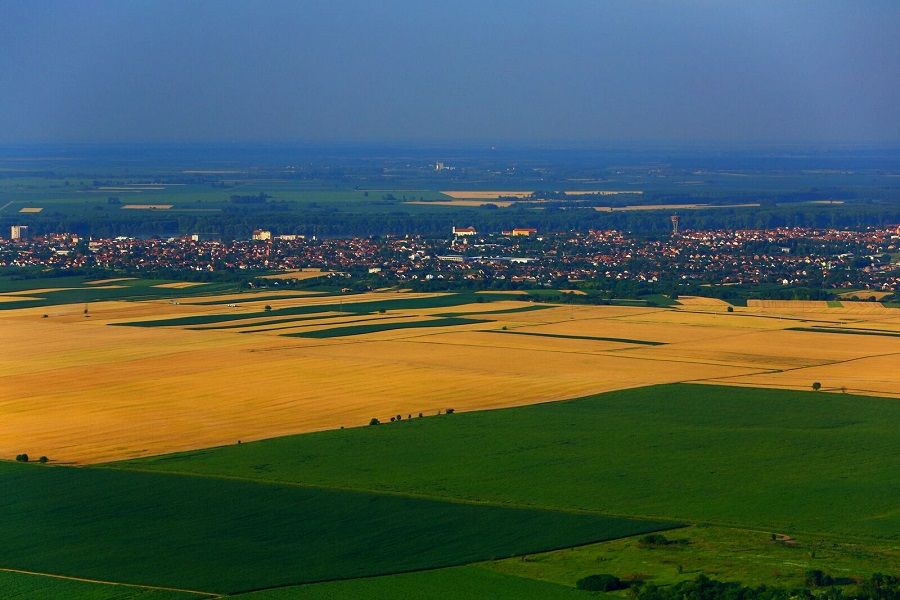
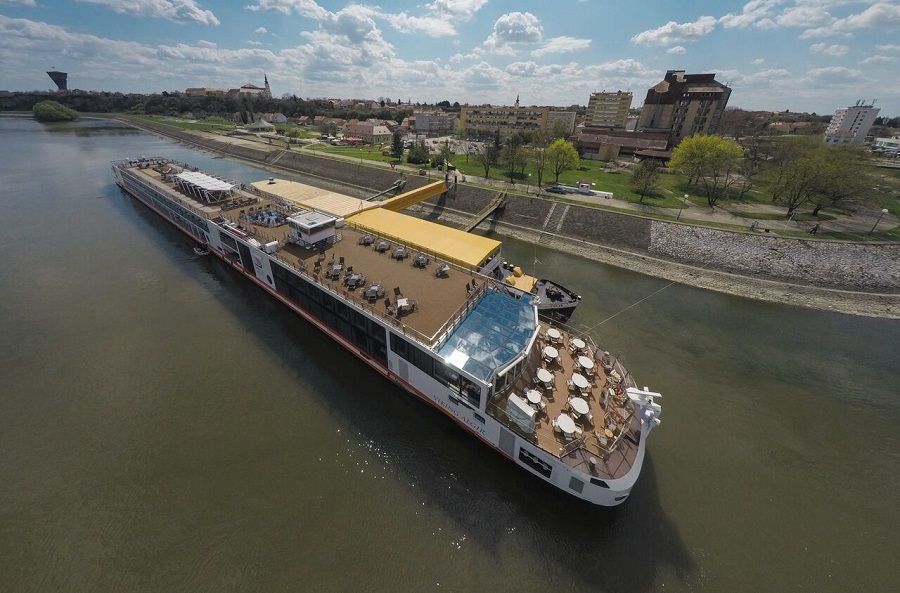
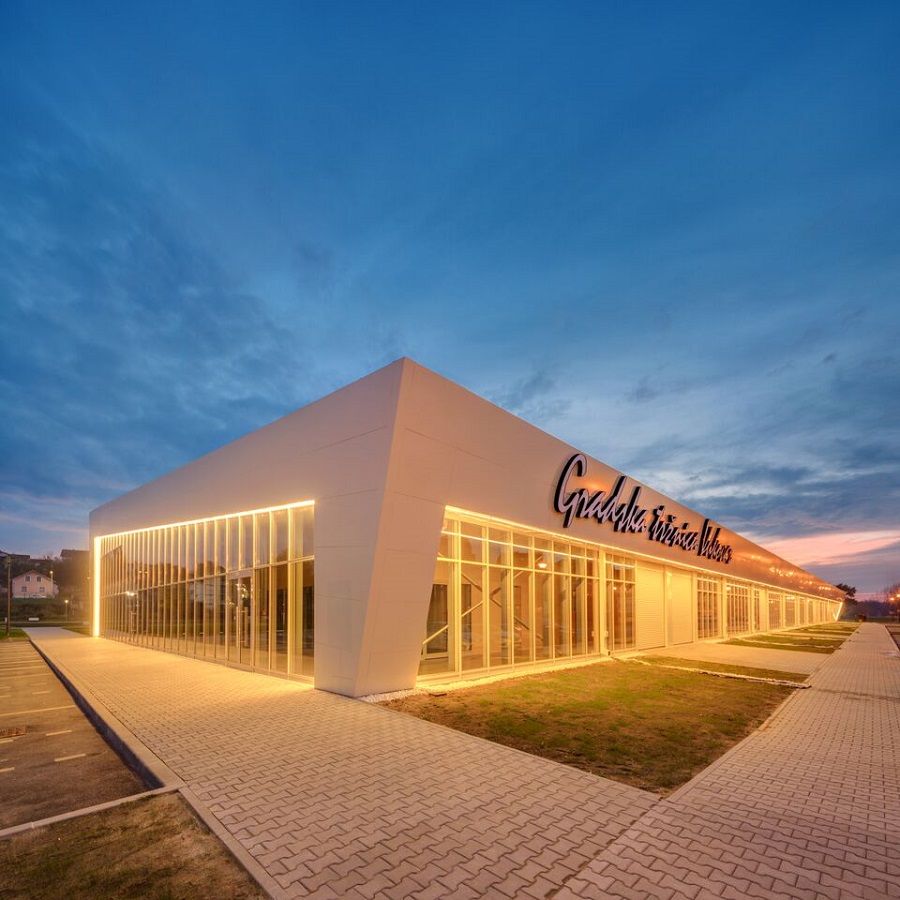
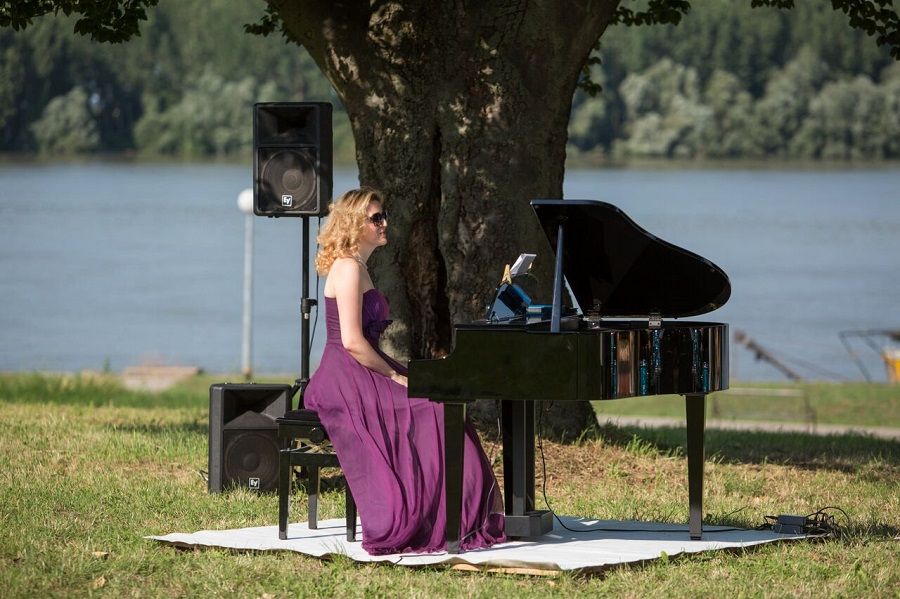
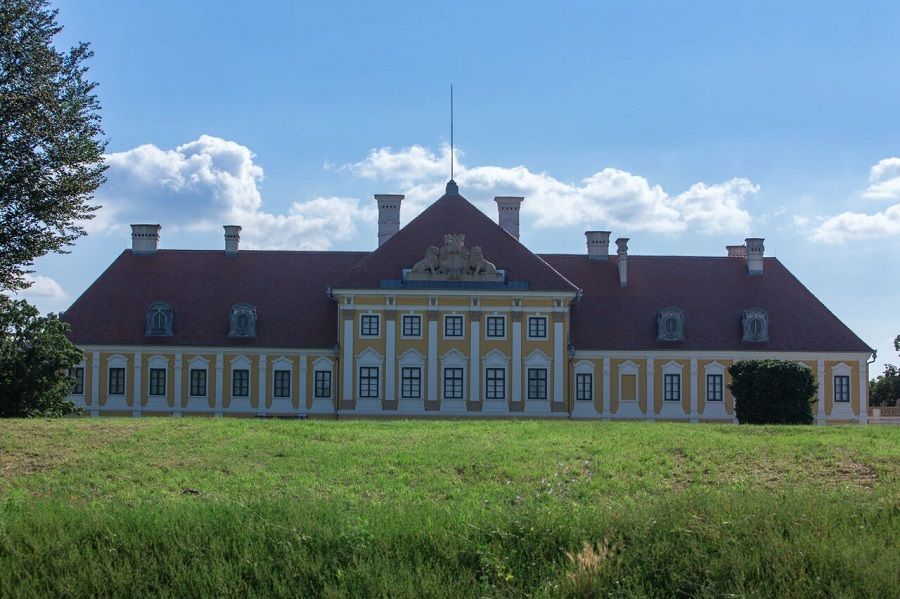
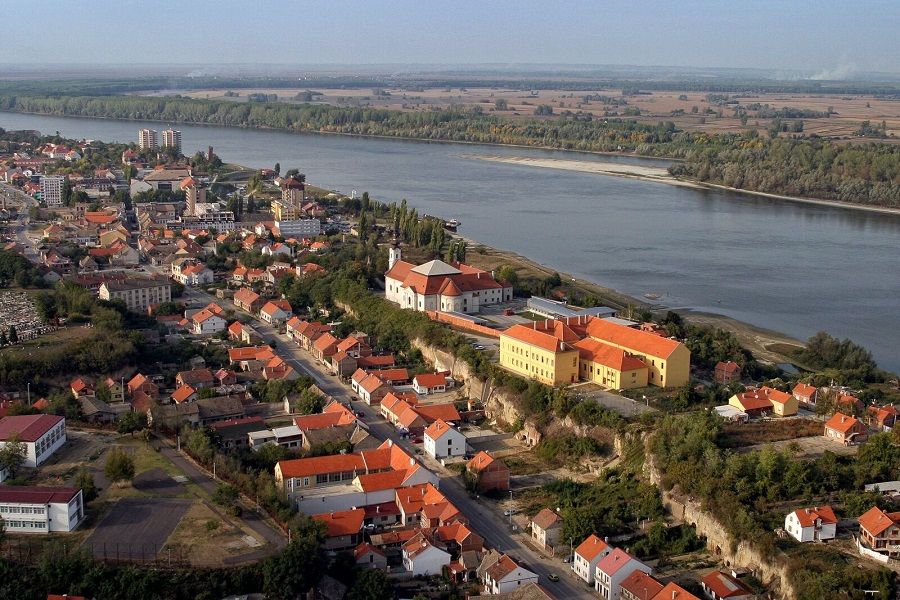
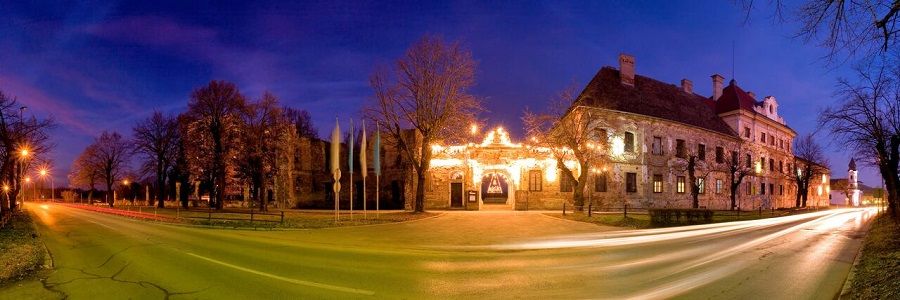
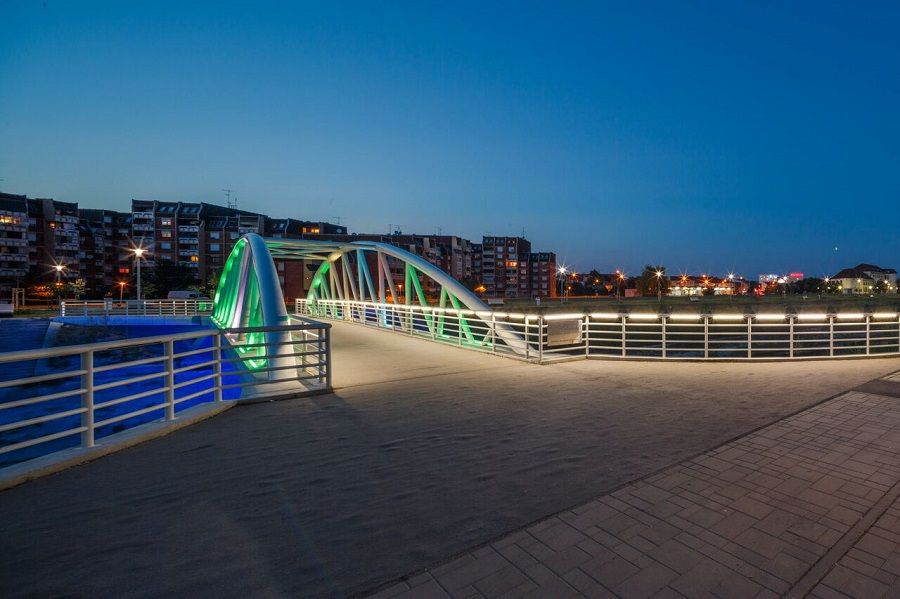
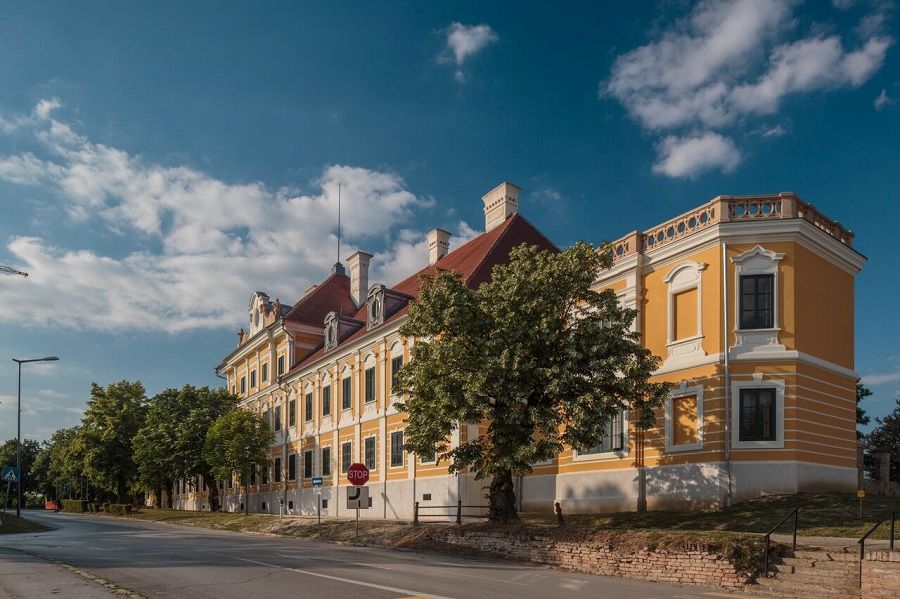
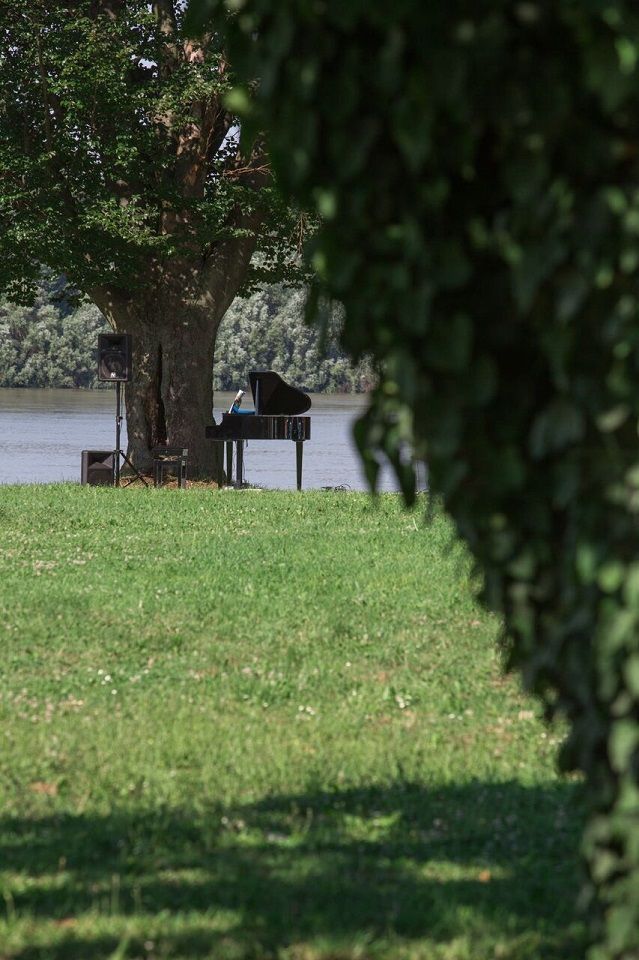
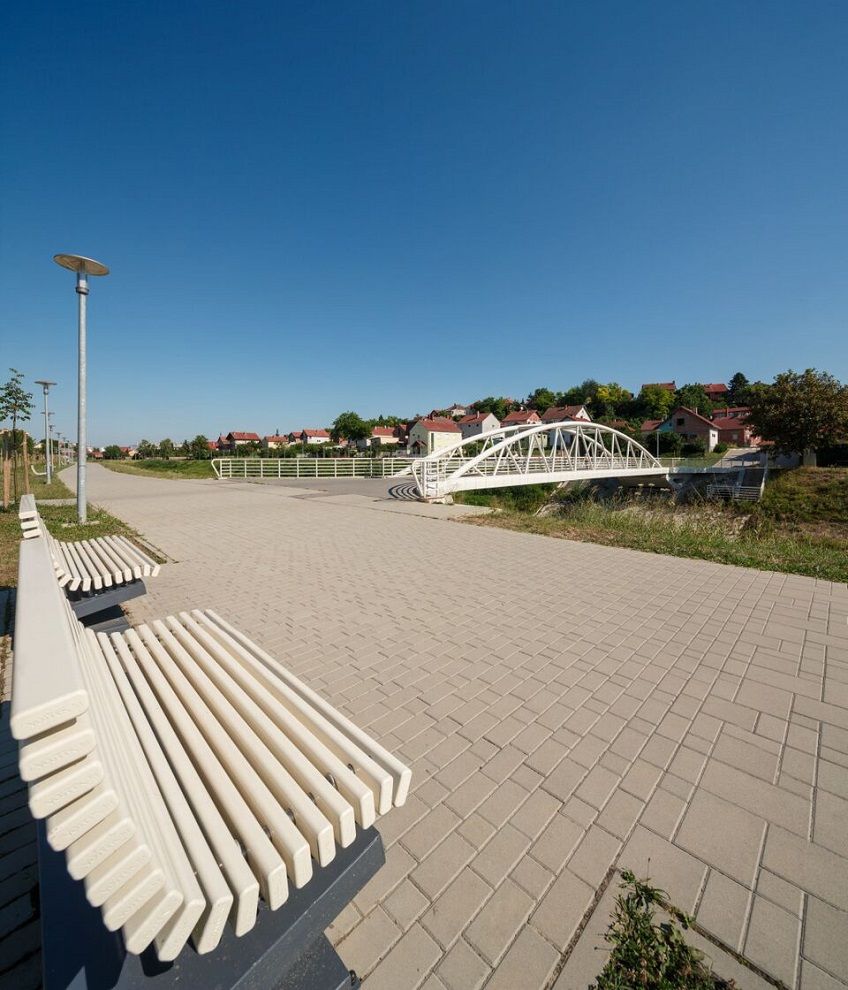
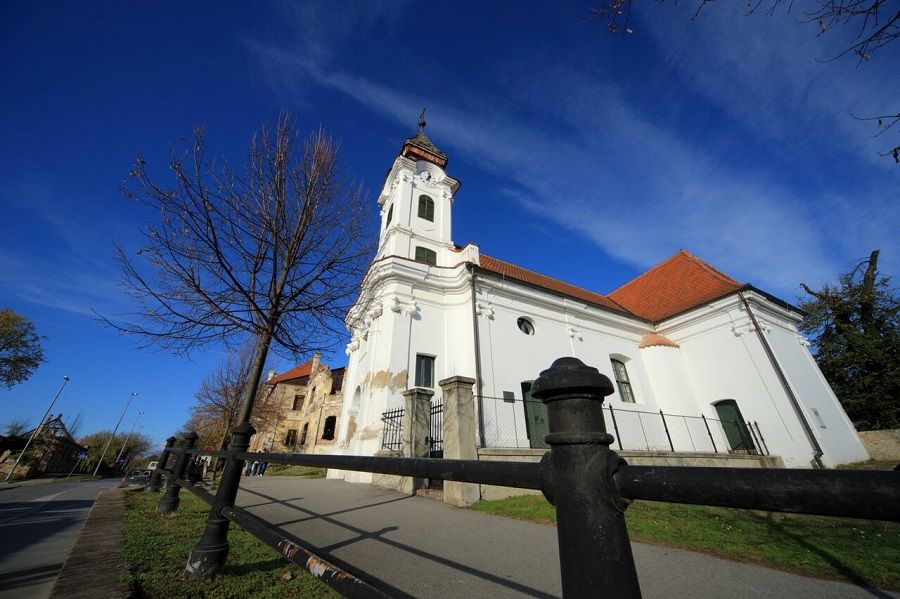
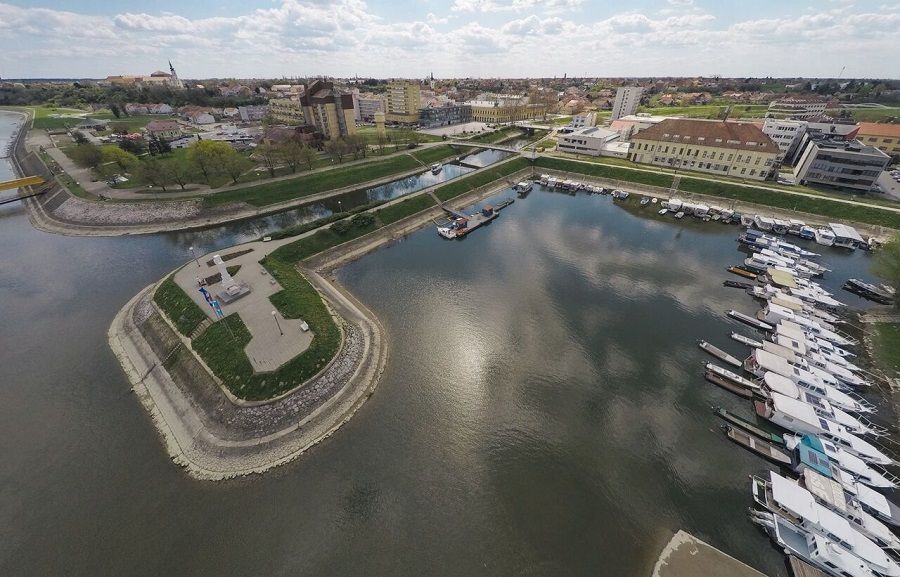
For the latest news from Vukovar, visit the dedicated TCN page.
Wreaths Laid, Candles Lit at Vukovar Memorial Cemetery
ZAGREB, November 19, 2018 - State and other official delegations on Sunday laid wreaths and lit candles at the Homeland War Memorial Cemetery in Vukovar, on the occasion of Vukovar Remembrance Day and the 27th anniversary of the town's fall into the hands of the Yugoslav People's Army (JNA) and Serb paramilitaries on 18 November 1991, after a three-month siege.
Tribute to the victims was paid at the town's memorial cemetery by President Kolinda Grabar-Kitarović, Parliament Speaker Gordan Jandroković and Prime Minister Andrej Plenković, who walked to the cemetery in a procession from the hospital, together with tens of thousands of other people who arrived in the town from all parts of the country.
Wreaths were also laid and candles lit by a delegation of defenders and war victims' associations, led by the last commander of the town's defence forces, Branko Borković, and a delegation of the town authorities, led by Mayor Ivan Penava.
A prayer for the Vukovar victims was led by Đakovo-Osijek Archbishop Đuro Hranić and a mass was said by the Bishop of Eisenstadt (Austria), Egidije Ivan Živković.
Several hundred lanterns were floated down the River Danube at Vukovar on Sunday evening as part of events commemorating Croatian soldiers and civilians killed or gone missing during the defence of this eastern town 27 years ago, at the start of Croatia's 1991-1995 war of independence.
This year the victims of Vukovar and other war victims were also commemorated by the tolling of church bells across the country at 6.11 pm. This initiative was launched by the Franciscan monastery in Vukovar and was accepted by Croatian bishops.
The Remembrance Day ceremonies will continue on Monday with commemorations for Croatian soldiers and civilians killed or gone missing in the town's Borovo Naselje neighbourhood.
The battle of Vukovar started on 25 August 1991, when members of the Yugoslav People's Army (JNA) and Serb paramilitaries launched an all-out tank and infantry attack on the town. The town was defended by around 1,800 members of the National Guard Corps, police and volunteers of the self-organised Croatian Defence Force (HOS), organised into the 204th Croatian Army Brigade.
The town's defence lines were broken after a three-month siege on 18 November 1991.
According to data from war victims' associations, 1,664 Croatian soldiers and civilians were killed in the aggression on Vukovar and 308 people gone missing in Vukovar remain unaccounted for.
For more on Vukovar, click here.
Vukovar: Meet Croatian Warship With Hero City's Name
As Morski writes on the 18th of November, 2018, the Vukovar warship, along with the Dubrovnik ship of the same class, has been part of the Croatian Navy for the past ten years.
Its service in the Finnish Navy was withdrawn in 2007 and the vessel was sold to Croatia for nine million euros, as part of Croatia's "offset" program for the procurement of Armored Patria vehicles. Otherwise, "Vukovar" is the first Croatian warship to successfully serve in a NATO mission.
The Helsinki class rocket launchers are a type of rocket launcher used by the Finnish Navy. There were a total of four vessels built in this class, with the Helsinki class following the Rauma rocket launcher class. All ships of this class were built at the Wärtsilä Hietalahti Shipyard in Helsinki, Finland.
The ship has a 300 tonne load dispacement, is 45 metres long, 8.8 metres wide, and boasts a three-metre long beam. It is equipped with three MTU 16V 538 TB92 diesel engines of 9,000 kW, and can reach a speed of 32 knots.
The ship is staffed by 33 members of the Armed Forces of the Republic of Croatia, and the commander of "Vukovar" is Ante Uljević.
As mentioned, Croatia's "Vukovar" rocket launcher is the first Croatian Navy vessel to take part in a NATO operation and has covered more than 4,100 nautical miles. In the Sea Guardian operation, it covered the most miles between the ships in the tactical group, and covered an area of about 180 nautical miles, and an average of 100 nautical miles from the western coast of Sicily to the coast of Tunisia, and then towards Malta.
It's a little known fact that in the Croatian Navy, a torpedo ship of the same name was in use until the year 2000, known as TB-51 Vukovar. It was built at the Kraljevica Shipyard back in 1971 and was initially put into service in the Yugoslav Navy under its original name TČ-222 Partizan II. The ship was renovated in 1991 in Šibenik where it was put into the service of the Croatian Navy under the name Vukovar. The crew of the ship consisted of twelve officers and twelve sailors. The ship was eventually withdrawn from service in the year 2000 and was stored in Brižine, near Split.
Want to keep up with more information like this? Make sure to follow our lifestyle page for more.
Tens of Thousands Gather for Vukovar Remembrance Day
ZAGREB, November 18, 2018 - Commemorative events marking Vukovar 1991 Remembrance Day and the 27th anniversary of the destruction of that eastern Croatian city in the country's 1991-95 war of independence started with a commemoration outside the town hospital where 3,500 wounded people had been treated during the siege by the JNA and Serb paramilitary troops in 1991.
Attending the commemoration were numerous people who arrived from all over Croatia and abroad, top state officials, including President Kolinda Grabar-Kitarović, Parliament Speaker Gordan Jandroković, Prime Minister Andrej Plenković and other government officials, members of Parliament, and representatives of the diplomatic corps, the Catholic Church and other religious communities, numerous war veterans' and victims' associations and political parties.
After the commemoration outside the city hospital, the participants embarked on a 5.5 km walk to the Homeland War Memorial Cemetery where state and other delegations laid wreaths and light candles and a religious service was held.
Vukovar Remembrance Day is observed in memory of 18 November 1991 when the town's defence lines were broken after a three-month siege by the Yugoslav People's Army (JNA) and Serb paramilitaries. The besieged town was defended by around 1,800 members of the National Guard Corps, police and volunteers of the self-organised Croatian Defence Force (HOS), organised into the 204th Croatian Army Brigade.
Parliament Speaker Gordan Jandroković said on Sunday that message from Vukovar to Croatia and the world is that war is the worst solution to conflicts and that regardless of all the tragedy, in the end this was a great victory.
"We came here today primarily to pay our respects to Vukovar, its residents and express our gratitude for everything they have done for Croatia. We are remembering victims, those defenders and civilians who died, were killed or went missing. This was a great tragedy," Jandroković said.
He also said that the message from Vukovar to the Croatian people and the whole world is that the war is the worst way to resolve conflicts and that solution must be sought in a peaceful fashion, through negotiations, taking into account the dignity of every people.
"The Croatian people in Vukovar showed heroism, readiness to make sacrifices, bravery, readiness to fight for their freedom and the Homeland and regardless of all the tragedy, in the end this was one great victory. This was the deciding battle which lead to Croatia's final victory in the Homeland War," Jandroković said.
Veterans' Affairs Minister Minister Tomo Medved said that all feelings today were going out to the victims and heroes, those who were taken from the hospital to the Ovčara farm. We are still intensively searching for the missing, and we will continue to search for them, our efforts are aimed at finding every missing person, Medved told the press when asked about the fate of more than 300 missing persons.
Asked about communication with Serbia regarding that issue, Medved said Croatia was doing everything to be a responsible partner. We are doing this by insisting on a professional and responsible cooperation and this is what we will continue to do, Medved said. He said his ministry has finished a draft bill on Vukovar as a place of special reverence and that it was now fine-tuning it in cooperation with other ministries.
Interior Minister Davor Božinović said that a task force entrusted with investigating war crimes had raised the number of criminal charges by 35% compared to last year, of which three cases refer to the Ovčara war crimes, adding that this was how the task force would continue to work.
"I want to express my deep respect to all defenders and civilians whose sacrifice and exceptional bravery we remember today," Božinović said. He added that the Interior Ministry was working intensively on resolving war crimes.
The president of the Social Democratic Party (SDP), Davor Bernardić, said on Sunday that today the country was remembering all victims who gave their lives for Croatia, in Vukovar, Škabrinja and the entire Homeland War.
"Vukovar had suffered mass destruction and we can only say – may this never happen again," Bernardić said. "I want all people in Vukovar to live a dignified life, to have dignified salaries, without gaps and exceptions and that finally, after 27 years, we end the search for the missing so their families can finally find peace," the SDP chief said. "This is the least that the country can do for them," Bernardić stressed.
Prime Minister Andrej Plenkovič said that that the eastern Croatian town enjoyed the strong support of all state institutions, notably the government, and that a special system of benefits was being negotiated with the European Commission.
"We are here for the 20th remembrance procession since the completion of the peaceful reintegration of the Croatian Danube region, to express our respect for the sacrifice of Croatian defenders and all who gave their lives for a free and democratic Croatia, for the sacrifice of Vukovar, the symbol of the Homeland War and for all those who gave what they had for Croatia's future and us who live in it today," Plenković said in Vukovar.
Plenković recalled that a number of local projects had been launched after a government session in the town two years ago, adding that more than 490 families had been provided with accommodation, new buildings had been built or existing ones had been renovated, and that funding for Vukovar had increased by 50%.
"We now have to create and consolidate conditions for private businesses to start operating in Vukovar, for job creation, and for demographic revival," the prime minister said.
Plenković believes that a special system of financial relief should be established for Vukovar, different from those applied in other parts of the country or the EU, which, he said, had to be agreed with the EC. "Talks are under way, and our position in that regard is firm because we believe that local circumstances are such that we should and can ask for such relief at EU level," he said.
Asked what had changed since the October 13 protest held in Vukovar against the inefficiency of state institutions in prosecuting war crimes, Plenković said that the current government had made significant progress in that regard, greater than any other previous government, and that work on war crimes prosecution was now much more systematic. The Office of the Chief State Prosecutor has sufficient funding for its functioning, he said, adding that there were no problems regarding the government's focus on war crimes prosecution.
Commenting on Independent Democratic Serb Party (SDSS) leader and MP Milorad Pupovac's visit to Vukovar on Saturday, Plenković said that Pupovac had decided to visit yesterday and that by visiting the town he had sent a message of respect and paid tribute to the victims of Vukovar. "Any commemoration should primarily be about remembering the truth, and about respect for the victims, but it should also help turn to the future, reconciliation and coexistence," he said.
"One of the key parts of first Croatian President Franjo Tuđman's legacy was peaceful reintegration and in line with his policy of understanding, we should work to lessen any possibility for new victims, his policy of ensuring peaceful reintegration with the help of the international community was brilliant," said Plenković.
The process of reconciliation is a difficult one, as evidenced by speeches by world leaders at the commemoration of the 100th anniversary of the end of World War I. "We live on a continent where reconciliation requires a lot of investment, knowledge of history, good will and cooperation for the future," he stressed.
Asked if Tuđman's decision on amnesty had been a good one, Plenković said that it was necessary to make a clear distinction between the Amnesty Act and war crimes. "War crimes are crimes against the sick, against civilians, the wounded and prisoners of war, there is no amnesty for that and that should be fully investigated and prosecuted. There is no statute of limitations on war crimes either under our law or under international conventions," he said.
Asked who was to blame why a project for an intercultural school in Vukovar had not come to life, Plenković said that that was one of the examples that showed how demanding the process of reconciliation was. "A certain amount of time has to pass, trust must be built through the process of coexistence, and building trust starts with small steps towards creating a general climate. It is up to the state to create the general climate and in real life, those processes are time-consuming. There are too many scars here for that to happen overnight," Plenković said.
Vukovar Mayor Ivan Penava said that the protest rally, held in that town in October due to discontent with the work of state institutions in prosecuting war crimes, had awakened state institutions, adding that we welcomed and appreciated that Independent Democratic Serb Party (SDSS) leader Milorad Pupovac visited Vukovar on Saturday.
"The protest is now behind us...to especially, our heroes, those living and those who are no longer with us are in our thoughts. Those who are responsible for the prosecution of war crimes should have them in their thoughts every day of the year," Penava said. "That is all I can say. This is simply thinking of 1991, of the heroes of Vukovar, Croatian defenders, civilian casualties and all the innocent victims who were treated brutally by the Great Serbia aggressor after the town fell, because of the huge losses they had during the battle of Vukovar," Penava said.
Asked whether he was satisfied with the results of the protest rally, he said that it was necessary to leave it to time to show, but that believed that something had started to happen. "Let's have patience, we woke up state institutions and I think that they don't have a lot of time, however, they need to be given some time to do what they should have done until now," he added.
Penava also commented on SDSS MP Milorad Pupovac's visit to Vukovar on Saturday, when he lowered into the waters of the Danube a wreath and lit a candle at the Homeland War Memorial Cemetery, noting on that occasion that all victims were important. "I don't want to name any names and don't want to speak about any victims except those of 1991. It is the wrong time and place to speak about other victims," Penava said.
"I appreciate and welcome the fact that he came to pay tribute to the victims of the Great Serbia aggression, because they are the only ones we can speak about in Vukovar," he concluded.
For more on Vukovar, click here.
Croatia Observes Vukovar Remembrance Day
ZAGREB, November 18, 2018 - Croatia is marking the 27th anniversary of the destruction of the eastern Croatian town of Vukovar following a 87-day siege, that ended on November 18, 1991 and claimed the lives of 1,624 Croatian soldiers and civilians.
The main commemoration will start outside the town hospital where 3,500 wounded people had been treated during a siege by the JNA and Serb paramilitary troops in 1991.
Participants in the commemoration, including war veterans and families of the war victims, will march through the city and stop at the Memorial Cemetery where wreath-laying ceremonies will be held by top state officials.
The battle of Vukovar
The battle of Vukovar was the fiercest and most protracted battle seen in Europe since 1945, and Vukovar was the first major European town to be entirely destroyed since World War Two.
The Remembrance Day is observed in memory of 18 November 1991 when the town's defence lines were broken after a three-month siege by the Yugoslav People's Army (JNA) and Serb paramilitaries. The besieged city was defended by around 1,800 members of the National Guard Corps, police and volunteers of the self-organised Croatian Defence Force (HOS), organised into the 204th Croatian Army Brigade.
After the ravaged city fell into the hands of the JNA and Serb paramilitaries, around 22,000 local Croats and members of other ethnic groups were expelled and several thousand Croatian soldiers and civilians were taken to Serb-run prison camps.
Numerous crimes were committed against the defence forces and civilians, including a massacre of 200 soldiers and civilians from the hospital who were taken from the hospital on November 19 and killed at a former farm at Ovčara, outside the town, and buried in a mass grave.
According to data from the Vukovar Hospital, 1,624 Croatian soldiers and civilians were killed and 1,219 were wounded during the siege of the city. Around 3,600 Croatian soldiers and civilians were killed in the aggression on and subsequent occupation of the city. A total of 309 persons from the Vukovar area are still listed as missing.
In 1999, the Croatian Parliament adopted a decision proclaiming Vukovar Remembrance Day to honour all those who died defending the town – the symbol of Croatia's freedom. Vukovar Remembrance Day is also commemorated all over Croatia.
Almost every town in the country has a street named after Vukovar and on the eve of Remembrance Day candles were lit to mark Vukovar Remembrance Day.
Vukovar and other occupied areas in eastern Slavonia, Baranja and western Srijem returned to Croatia's constitutional and legal order on January 15, 1998, after he process of peaceful reintegration of the Croatian Danube River region ended.
For more on the Homeland War, click here.
Leader of Serbs in Croatia Milorad Pupovac Visits Vukovar
ZAGREB, November 17, 2018 - Serb National Council (SNV) president and Member of Parliament Milorad Pupovac said in Vukovar on Saturday that Croatia needed to introduce a policy of remembrance that would not be a source of fear and accusations and perpetuate hate, but would rather provide an opportunity for people to come together and pay tribute.
Pupovac paid tribute today to the victims of Vukovar together with Marica Šeatović, head of the association "Protiv zaborava" (Against oblivion), which represents the families of Croatian Serbs killed, gone missing or abducted in the war. Together, they lowered one wreath into the waters of the River Danube and then laid a wreath and lit a candle at the town's Homeland War Memorial Cemetery, after which they lit candles for all people killed in Vukovar at the Serb Orthodox Church of St. Nicholas.
"It is our deepest wish that we start creating, in Vukovar and the whole of the country, commemorative and remembrance policies that will not be a source of fear and accusations and perpetuate hate but rather provide an opportunity to come closer to one another and express respect, tribute and solidarity," the leader of the Independent Democratic Serb Party (SDSS) said.
After his visit to the church, Pupovac addressed the press, saying that he had decided to visit the town today after a meeting held on Friday with representatives of leading organisations of Croatian Serbs, so that he could lay wreaths and pay tribute in peace without having to feel that it might offend anyone or that tomorrow, on Vukovar Remembrance Day, he might be in a place where his presence was not wanted.
"I came here today because I did not want what happened on the previous two occasions to happen again – not being able to lay wreaths and express my deepest respect for the victims," Pupovac said.
Asked by reporters to comment on Vukovar Mayor Ivan Penava's statement that he (Pupovac) could not both visit Bačka Palanka (where Serbian authorities organise commemorations for Croatian Serb refugees and Croatian Serbs killed in the 1995 Operation Storm) and pay tribute to the victims of Vukovar, Pupovac said that just as he had not been for masters of life and death in the war so he was not for masters of the dead in peacetime.
"All the dead belong to us and those who want to prevent that are bad masters, have bad intentions and are ill-advised," he said, adding that he was aware that not all Serbs would understand his visit to Vukovar just as not all Croats would accept his messages.
Asked if his actions should be followed by representatives of the Vukovar SDSS branch, who so far have not attended Vukovar Remembrance Day commemorations, Pupovac said that they were among those who attended the meeting with him on Friday and that his visit to Vukovar today was also owing to their contribution to the meeting.
"And as for when Serbs will come here in large numbers, that is not only up to them. I am doing what I am doing to make that happen, to make room for them, too, so that they too can feel that they can come here. And they were here, only that's being forgotten," said Pupovac.
For more on Serbs in Croatia, click here.
Vučedol Culture Museum Welcomes 200,000 Visitors Since Opening
ZAGREB, November 12, 2018 - After the Vučedol Culture Museum recently received this year's Innovation of the Year Award at Croatian Tourism Days, Vukovar Mayor Ivan Penava has congratulated the museum's staff on that achievement, adding that in the past three and a half years, more than 200,000 visitors have visited the museum which has contributed greatly to the town's development.
The Croatian National Tourist Board awarded the museum for its educational projects designed for the youngest readers who can be informed, through a picture book and guide, of the Vučedol prehistoric culture and of the museum's holdings.
"We are proud of this award and grateful to the Vukovar Tourist Board for nominating us and the panel of judges who recognised the museum for its innovation," museum director Mirela Hutinec has said.
She recalled the museum's latest 100 million kuna project, the Vučedol Archaeological Park, which is being implemented by the museum together with the Culture Ministry, the Town of Vukovar, its Tourist Board and Vukovar Port.
The project is expected to be completed by June 2022 and involves rebuilding the Vučedol settlement and its copper foundry, building a research centre, a farm, a planetarium, an educational pathway and hospitality facilities.
The Vučedol Culture Museum was opened in June 2015 as part of the government's Vukovar-Vučedol-Ilok project, implemented jointly with the Culture Ministry and Council of Europe Development Bank.
For more articles on Croatian museums, click here.

